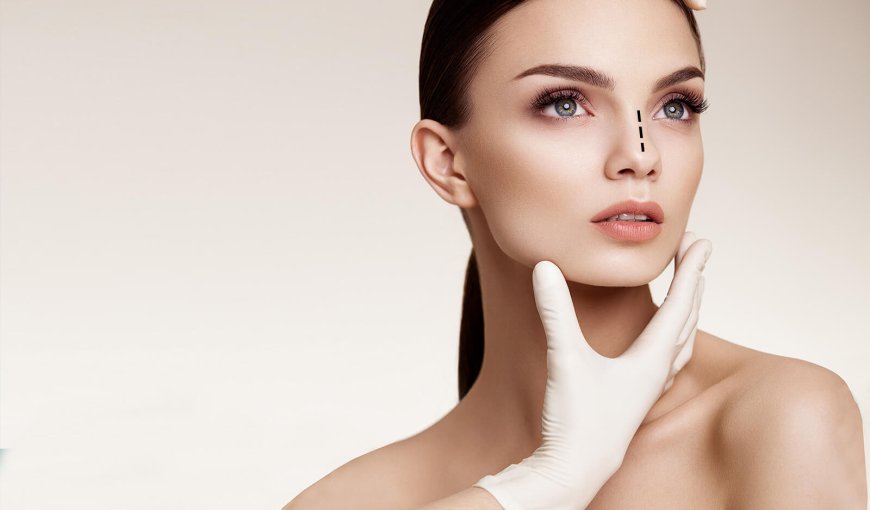Why Do People Want Cosmetic Surgery?

Cosmetic surgery has become increasingly popular over the past few decades, with millions of people worldwide opting for various procedures to enhance their appearance. From minimally invasive treatments to major surgical operations, the motivations for seeking cosmetic surgery are as diverse as the procedures themselves. This blog explores the key reasons why individuals pursue cosmetic surgery, shedding light on societal influences, personal motivations, and psychological aspects.
The Influence of Society and Media
One of the primary reasons for the rising interest in cosmetic surgery is the pervasive influence of society and media. Social media platforms and television shows often showcase idealized beauty standards that can create pressure to conform. Celebrities and influencers frequently share their own cosmetic enhancements, normalizing procedures like lip fillers, breast augmentations, and rhinoplasties. This constant exposure can lead individuals to feel inadequate about their appearance, prompting them to consider surgery as a means to achieve the perceived ideals of beauty.
Moreover, advertising campaigns frequently emphasize youth and beauty, creating a cultural narrative that links physical appearance to personal and professional success. Many people believe that looking better will lead to improved self-esteem, better relationships, and enhanced career opportunities. As a result, individuals may feel compelled to pursue cosmetic surgery to align themselves with these societal standards.
Personal Motivation and Self-Improvement
Beyond societal pressures, many individuals seek cosmetic surgery as a form of personal empowerment. For some, cosmetic procedures are about self-improvement rather than conforming to external standards. This can include correcting perceived flaws, enhancing features, or rejuvenating one’s appearance. Procedures such as facelifts, tummy tucks, and breast lifts can help individuals feel more comfortable in their skin and boost their self-confidence.
Personal motivations also encompass significant life changes, such as weight loss, pregnancy, or aging. For instance, after losing a substantial amount of weight, individuals may seek body contouring procedures to remove excess skin and improve body shape. Similarly, women who have gone through pregnancy may choose breast augmentation or lift procedures to restore their pre-pregnancy bodies. These transformations can be significant milestones in a person’s life, leading to the desire for surgical enhancements.
Psychological Factors
The psychological aspect of pursuing cosmetic surgery cannot be overlooked. Many individuals believe that enhancing their physical appearance will lead to better mental health and overall well-being. For those struggling with body image issues or low self-esteem, cosmetic surgery can provide a path toward a more positive self-image. The idea of changing something they dislike about themselves can be empowering and lead to greater confidence in their daily lives.
However, it is essential to note that while cosmetic surgery can be beneficial for some, it may not be the solution for everyone. Individuals with underlying psychological issues, such as body dysmorphic disorder, may find that surgery does not resolve their concerns. Therefore, it is crucial for potential patients to approach cosmetic surgery with realistic expectations and a clear understanding of their motivations.
The Role of Technological Advances
Technological advancements in the field of cosmetic surgery have made procedures safer, more accessible, and less invasive than ever before. Innovations in techniques and materials have led to shorter recovery times, reduced risks, and improved results. As a result, many people feel more confident in choosing cosmetic surgery as an option. Non-invasive procedures, such as Botox and dermal fillers, have also gained popularity, allowing individuals to make subtle enhancements without the need for surgery.
These advancements have democratized cosmetic surgery, making it available to a broader range of people. With the rise of clinics and practices specializing in aesthetic procedures, patients now have more options than ever before. For example, the Royal Cosmetic Surgery Clinic PK offers a variety of cosmetic procedures tailored to meet individual needs and desires. Their commitment to patient care and safety ensures that individuals can pursue their cosmetic goals in a supportive environment.
Conclusion
In conclusion, the motivations behind the desire for cosmetic surgery are complex and multifaceted. From societal pressures and personal empowerment to psychological factors and technological advancements, individuals seek cosmetic enhancements for various reasons. Understanding these motivations is crucial for both patients and practitioners to ensure that cosmetic surgery is pursued thoughtfully and responsibly.
While cosmetic surgery can offer significant benefits, it is essential for individuals to reflect on their motivations and approach the decision with careful consideration. Ultimately, the goal should be to enhance one's self-esteem and overall quality of life, leading to a healthier and more fulfilling existence.

 Sania
Sania